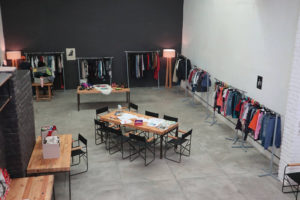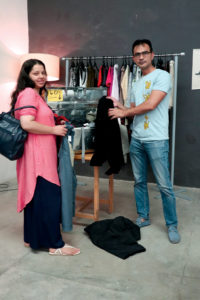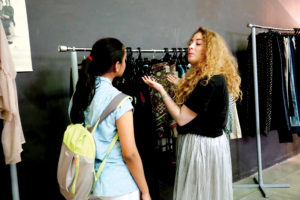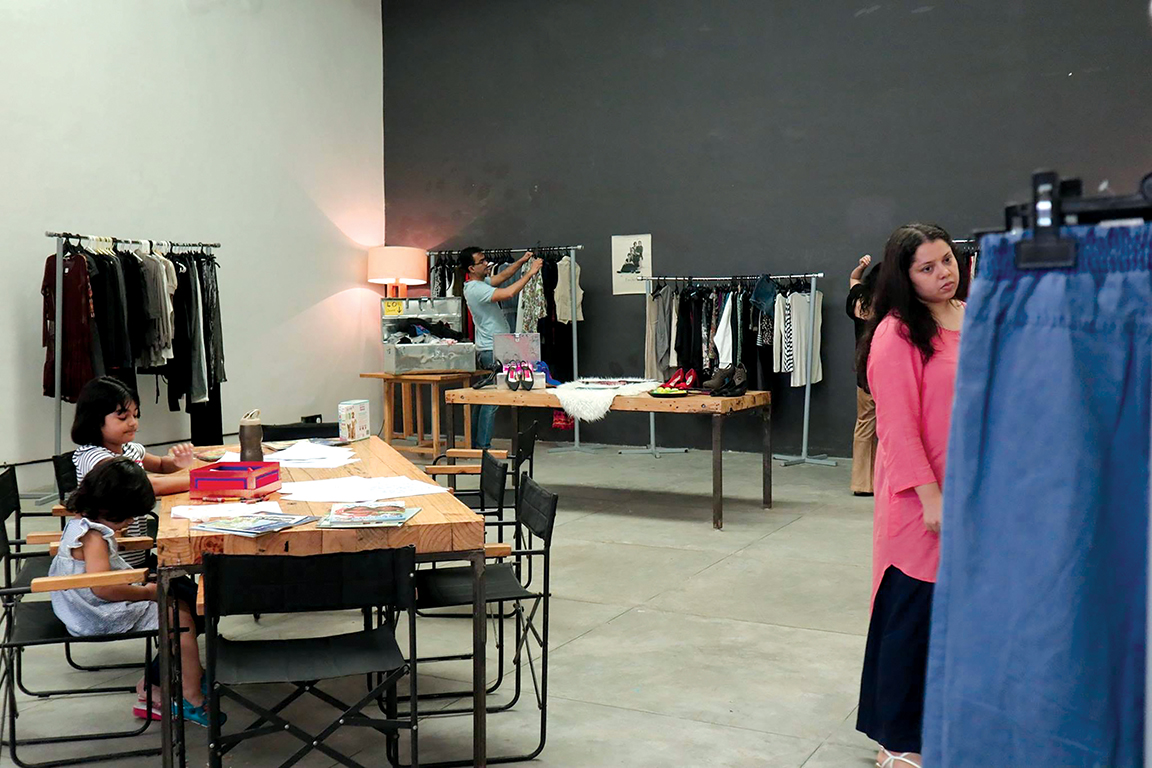Delhiites were recently introduced to the concept of swapping clothes. While some found it fascinating, others were not so excited about the idea of second-hand clothes
Dhanmill compound in South Delhi that is known for its boutique appeal and a line-up of alternate retail spaces recently held a fashion swap that was one of its kind. With designer clothes and unique pieces made in fashion heavens like Paris and Milan, the event’s invite on social media platforms grabbed eyeballs.
Held by French national Moane Rosello, the exhibition was a pop-up shop for second-hand clothes. It was a curation of selective top luxury brands, unique designer wear and high street brands from the wardrobes of Rosello’s friends.

An attempt at creating a vintage shopping destination for people who really want to find an alternate way of shopping and dressing, this is something Rosello agrees she missed in Delhi.
“With this Fashion Swap, I want to address the lack of creativity when it comes to shopping. What if we don’t have too many options, then what do we do?” she questions.
Vintage shops, which are common in European countries, inspired her to create a space that is similar but with a tinge of Indian-ness. As a student in Paris, before moving to Delhi, Rosello would sell many of her outfits to get new ones. “I still have dresses that are around 10 years old but are in perfect condition. Some are unique pieces for which I did not even shell out a lot of money,” says Moana.
The exhibition, set up in shed number 9 of the compound, was rather minimally put together with elements that made it warm and welcoming. A sight of her friends’ kids playing and drawing on a table was an intelligent hook to keep the children busy. A dedicated section for kids’ clothing was also part of the exhibit.
Rosello happily speaks to the visitors, who ask questions to educate themselves about the source of the merchandise on display. High street clothing priced between Rs 40 to Rs 140 was an attractive range for many people who visited the exhibit.
For Madhur, who came with her teenage daughter, it was the idea of sustenance that was more inviting. “I usually shop from the usual places, but it’s exciting to pick something from a place like this to surprise myself.” She is a happy customer, who after shopping, poses with Rosello and gets herself photographed.

Rosello grew up in Reunion, an island near Mauritius and a French overseas department, where people of Indian origin were part of her life as they constituted around 30 per cent of the population. “In fact, my grandmother, who was an adoptive mother to my mother, was Indian, so it was natural for me to have some attachment to India,” she adds. The memories of wearing sarees and suits as a kid always made her curious about Indian culture.
It took her a week’s time exploring New Delhi to decide that she wanted to continue living in the city and not New York, which is where she was going to move otherwise. A PhD student in comparative literature, she is currently working on her thesis on women empowerment.
What got many people excited about this pop up was the curation of second-hand international designer pieces, which is a rare thing in India. Shweta, a designer by profession who visited the venue, was amazed by the selection of designer outfits on display. “I wanted to come and see this section. What I am looking at is an inspiration for my own practice. I am quite impressed having seen a range from designers like Martin Margiela, Donna Karan and Dries Van Noten, which is not a regular deal in India,” she says.
The apprehension that comes with second-hand clothes is a difficult thing to shed. “In Delhi, we shop from Sarojini Nagar market, but never fully acknowledge that it is mostly second-hand clothes on sale,” she says. However, after this exhibit, Rosello thinks many of us are ready for sustainable clothing options, except the elite in Delhi who are slowing the process. Out of the many people she met at the Swap, there were only a few people who weren’t comfortable with second-hand clothes. Some even asked where the new clothes were.
She is glad about the support she got for her exhibition. Even her babysitter bought clothes for the Swap, in exchange for some clothes that Rosello gave her. But the exhibition was criticised by the expats and Indian elites.

She says that some women belonging to the elite class, “bought the cheapest options for the sake of prestige. Some people think it’s fashionable to support an NGO that will benefit from the sales I make. Some people even said that they would give it to their house help.”
Rosello wants to uplift the reputation of second-hand clothes. Without a large scale business plan or market strategy, she did it on a whim —“like let us go ahead and do something that makes all of us happy.”





